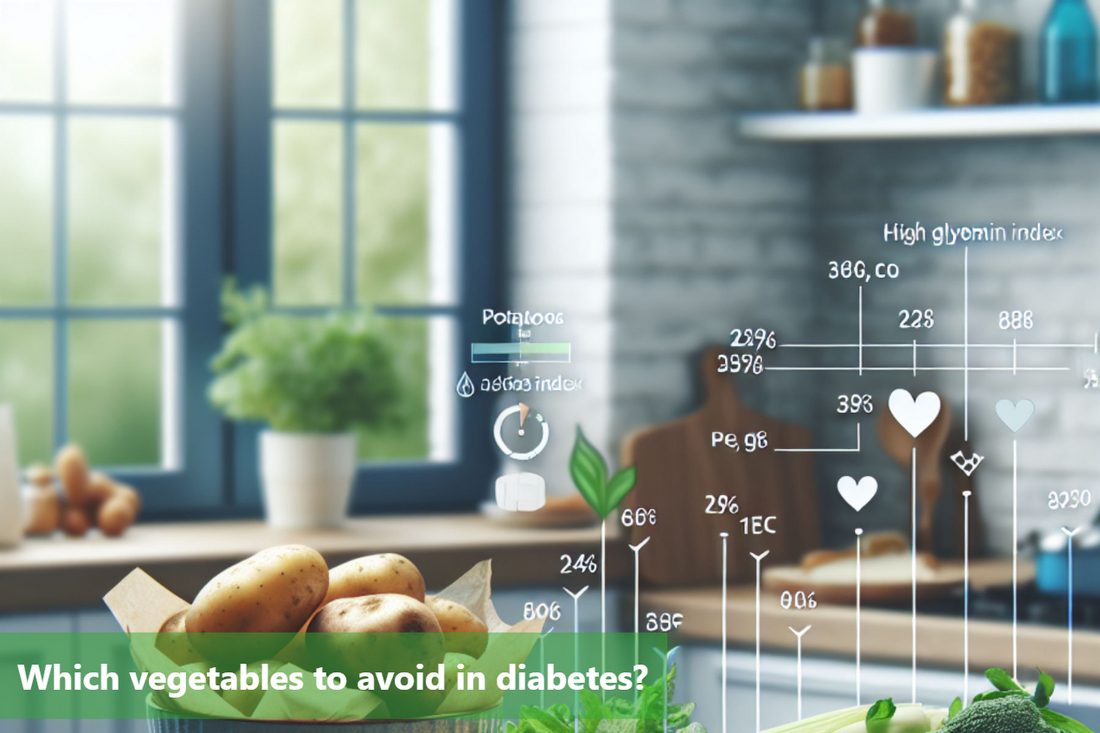When managing diabetes, it is crucial to be mindful of the types of vegetables consumed. Some vegetables can significantly impact blood sugar levels, making it essential for individuals with diabetes to be selective about their choices. Certain vegetables have a high glycemic index, causing rapid spikes in blood sugar. Understanding which vegetables fall into this category can help individuals make informed decisions about their diet. Some vegetables contain natural sugars that, when consumed in excess, can elevate blood glucose levels. Individuals with diabetes need to moderate their intake of vegetables high in natural sugars to manage their condition effectively.
High Glycemic Index Vegetables to Avoid
carrots: Despite being a nutritious choice, carrots have a high glycemic index, leading to a quick increase in blood sugar levels.
Beetroots: Beetroots should also be avoided as they are rich in natural sugars and can impact blood glucose levels significantly.
Pumpkin: Pumpkin, although a favorite in many dishes, is high in carbohydrates and can affect blood sugar levels swiftly.
Parsnips: Parsnips are starchy vegetables that should be limited as they can lead to spikes in blood sugar.
Starchy Vegetables to Limit
Potatoes: Potatoes have a high glycemic index, meaning they can cause a rapid increase in blood sugar levels. It is advisable for individuals with diabetes to consume potatoes in moderation.
Corn: Corn is rich in carbohydrates and can elevate blood sugar levels. It is recommended to control portion sizes when incorporating corn into meals.
Sweet Potatoes: Sweet potatoes are a healthier alternative to regular potatoes due to their nutrient content, but they still contain carbohydrates that can impact blood sugar levels. Individuals with diabetes should consume sweet potatoes carefully.
Vegetables High in Natural Sugars to Watch Out For
Carrots are a common vegetable known for their natural sweetness, but they are also higher in sugars compared to other vegetables. Consuming carrots in moderation is recommended for those with diabetes to avoid spikes in blood sugar levels.
Beets, another root vegetable, contain natural sugars and should be eaten in limited quantities.
Sweet potatoes, although a good source of nutrients, are starchy vegetables that can elevate blood sugar levels. It is advisable for individuals with diabetes to be cautious when including sweet potatoes in their diet and to monitor their portion sizes.
Peas, especially green peas, are also higher in natural sugars and should be consumed mindfully.
Top Vegetables for Managing Diabetes
When it comes to managing diabetes, incorporating the right vegetables into your diet can make a significant difference. Here are some of the best vegetables for individuals with diabetes:
Leafy Greens - Spinach, kale, and collard greens are high in fiber and low in carbohydrates, making them excellent choices for blood sugar control.
Broccoli - Packed with vitamins, minerals, and antioxidants, broccoli is a great vegetable to include in your diabetic-friendly diet.
Bell Peppers - Rich in vitamin C and fiber, bell peppers are a colorful and nutritious vegetable that can help regulate blood glucose levels.
Carrots - Carrots are loaded with beta-carotene and fiber, making them a good choice for individuals with diabetes.
Tomatoes - Tomatoes are low in calories and carbohydrates, making them a versatile and healthy option for diabetic meal planning.
By incorporating these vegetables into your daily meals, you can support your diabetes management while enjoying a variety of delicious and nutritious dishes.
Bottom line:
Individuals managing diabetes must be cautious about the vegetables they eat. Some veggies can impact blood sugar levels significantly, so it's important to know which ones to avoid. High glycemic index vegetables like carrots, beetroots, and parsnips can cause blood sugar spikes. Starchy vegetables such as potatoes and corn can also be challenging for blood sugar management. Vegetables high in natural sugars like peas and sweet potatoes should be limited to avoid sudden spikes. Non-starchy vegetables like leafy greens, broccoli, and bell peppers are good for stable blood sugar levels. Eating a variety of colorful veggies rich in fiber and antioxidants is essential. Consult a healthcare provider or dietitian for a personalized meal plan.
FAQs:
Q: Is it advisable to avoid starchy vegetables in diabetes? A: It is recommended to limit the intake of starchy vegetables like potatoes, sweet potatoes, and corn as they can raise blood sugar levels.
Q: Should I avoid vegetables with high sugar content if I have diabetes? A: Yes, it is best to avoid high-sugar vegetables such as beets, peas, and carrots in large quantities to help control blood sugar.
Q: Are canned vegetables suitable for individuals with diabetes? A: Canned vegetables often have added sugars and preservatives, so it is better to opt for fresh or frozen vegetables to maintain a healthy diet.
Q: Can I still enjoy root vegetables if I have diabetes? A: While root vegetables like parsnips and yams have natural sugars, they can be consumed in moderation as part of a balanced diet for individuals with diabetes.
Q: What are some vegetables that are generally safe for diabetics to consume? A: Non-starchy vegetables such as leafy greens, broccoli, cauliflower, and bell peppers are good choices for individuals with diabetes as they are low in carbohydrates and calories.
This Blog post is an initiative by DiabeSmart, to provide accurate and Nutritionist / Doctor approved information related to Diabetes. DiabeSmart is India's first Food brand designed specifically for Diabetics, that has been clinically tested on Diabetics and Pre-Diabetics to deliver 55% - 70% lower Sugar spikes. DiabeSmart is part of Lo! Foods - India's leading brand for Everyday Functional Health foods.







